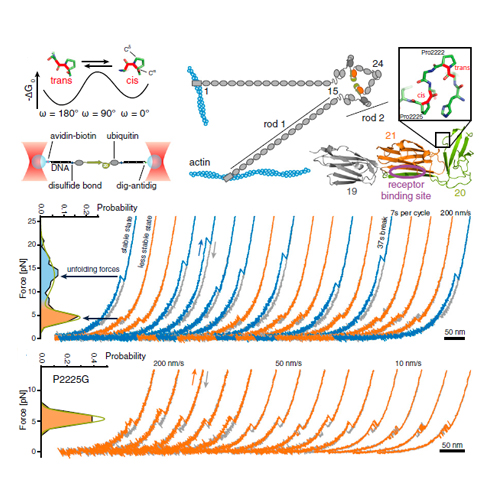Force-dependent isomerization kinetics of a highly conserved proline switch modulates the mechanosensing region of filamin
15-Apr-2014
PNAS, 2014, doi: 10.1073/pnas.1319448111, vol. 111 no. 15, 5568–5573, published on 15.04.2014
PNAS, online article
PNAS, online article
Proline switches, controlled by cis–trans isomerization, have emerged as a particularly effective regulatory mechanism in a wide range of biological processes. In this study, we use single-molecule mechanical measurements to develop a full kinetic and energetic description of a highly conserved proline switch in the force-sensing domain 20 of human filamin and how prolyl isomerization modulates the force-sensing mechanism. Proline isomerization toggles domain 20 between two conformations. A stable cis conformation with slow unfolding, favoring the autoinhibited closed conformation of filamin’s force-sensing domain pair 20–21, and a less stable, uninhibited conformation promoted by the trans form. The data provide detailed insight into the folding mechanisms that underpin the functionality of this binary switch and elucidate its remarkable efficiency in modulating force-sensing, thus combining two previously unconnected regulatory mechanisms, proline switches and mechanosensing.











